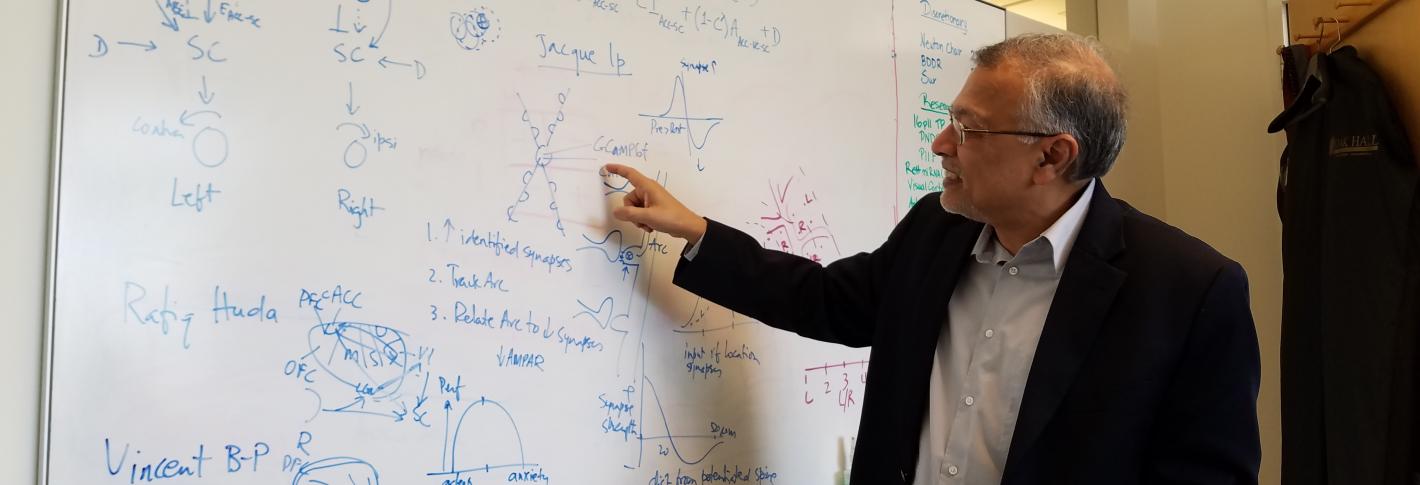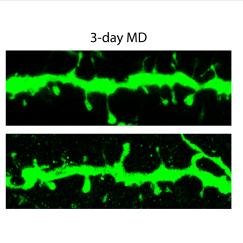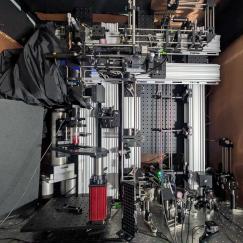The American Institute for Medical and Biological Engineering (AIMBE) has elected Mriganka Sur, Newton Professor of Neuroscience in the Department of Brain and Cognitive Sciences at MIT to its College of Fellows. Peers and members of the AIMBE college nominated, reviewed, and elected Sur for developing technologies to image brain cells, synapses and circuits and applying them innovatively to elucidate neuronal plasticity and computations.
"I am very honored to be elected to the AIMBE College of Fellows and grateful to the many wonderful members of the lab over the years who have propelled our research forward," said Sur, a core investigator in The Picower Institute for Learning and Memory. "This recognition strengthens our determination and resolve to understand fundamental mechanisms of brain wiring and processing, and their dysfunction in brain disorders. We aim to focus on developing next-generation tools for studying brain cells and circuits, and applying them innovatively for studying brain plasticity and computations.”
In addition to pioneering research employing two-photon microscopy to reveal how synapses, or the connections between neurons, change in the live brain with neural electrical activity, Sur's lab has also advanced the technology of three-photon microscopy to see even deeper into the living brain. Combining these technologies with decoding and encoding computational models and cell- and projection-specific optogenetic manipulations, his team has revealed novel principles of information flow from sensory through parietal to frontal and cingulate cortex in model mice. The lab's studies have shown how cortical areas rewire amid changes in sensory inputs, have revealed new rules of synaptic plasticity, and have led to novel pharmacological interventions to address Rett Syndrome. In other studies, Sur's lab has also revealed new functions for astrocyte glial cells and investigated roles for neuromodulatory inputs to inhibitory and excitatory neurons in shaping cortical activity mediated by attention. A landmark paper describing a computational model of feature selectivity among visual cortex neurons has been cited more than 1,000 times
The College of Fellows comprises the top two percent of medical and biological engineers in the country, AIMBE said in its announcement, adding that "the most accomplished and distinguished engineering and medical school chairs, research directors, professors, innovators, and successful entrepreneurs are members." AIMBE Fellows are regularly recognized for their contributions in teaching, research, and innovation. AIMBE Fellows have been awarded the Nobel Prize, the Presidential Medal of Science and the Presidential Medal of Technology and Innovation, and many also are members of the National Academy of Engineering, National Academy of Medicine, and the National Academy of Sciences.
A formal induction ceremony will be held during AIMBE’s 2022 Annual Event on March 25. Sur will be inducted along with 152 colleagues who make up the AIMBE Fellow Class of 2022.
AIMBE’s mission is to recognize excellence in, and advocate for, the fields of medical and biological engineering to advance society. Since 1991, the organization says, AIMBE’s College of Fellows has led the way for technological growth and advancement in the fields of medical and biological engineering. AIMBE Fellows have helped revolutionize medicine and related fields to enhance and extend the lives of people all over the world. They have successfully advocated for public policies that have enabled researchers and business-makers to further the interests of engineers, teachers, scientists, clinical practitioners, and ultimately, patients. AIMBE Fellows are committed to giving back to the fields of medical and biological engineering through advocacy efforts and public policy initiatives that benefit the scientific community, as well as society at large.






